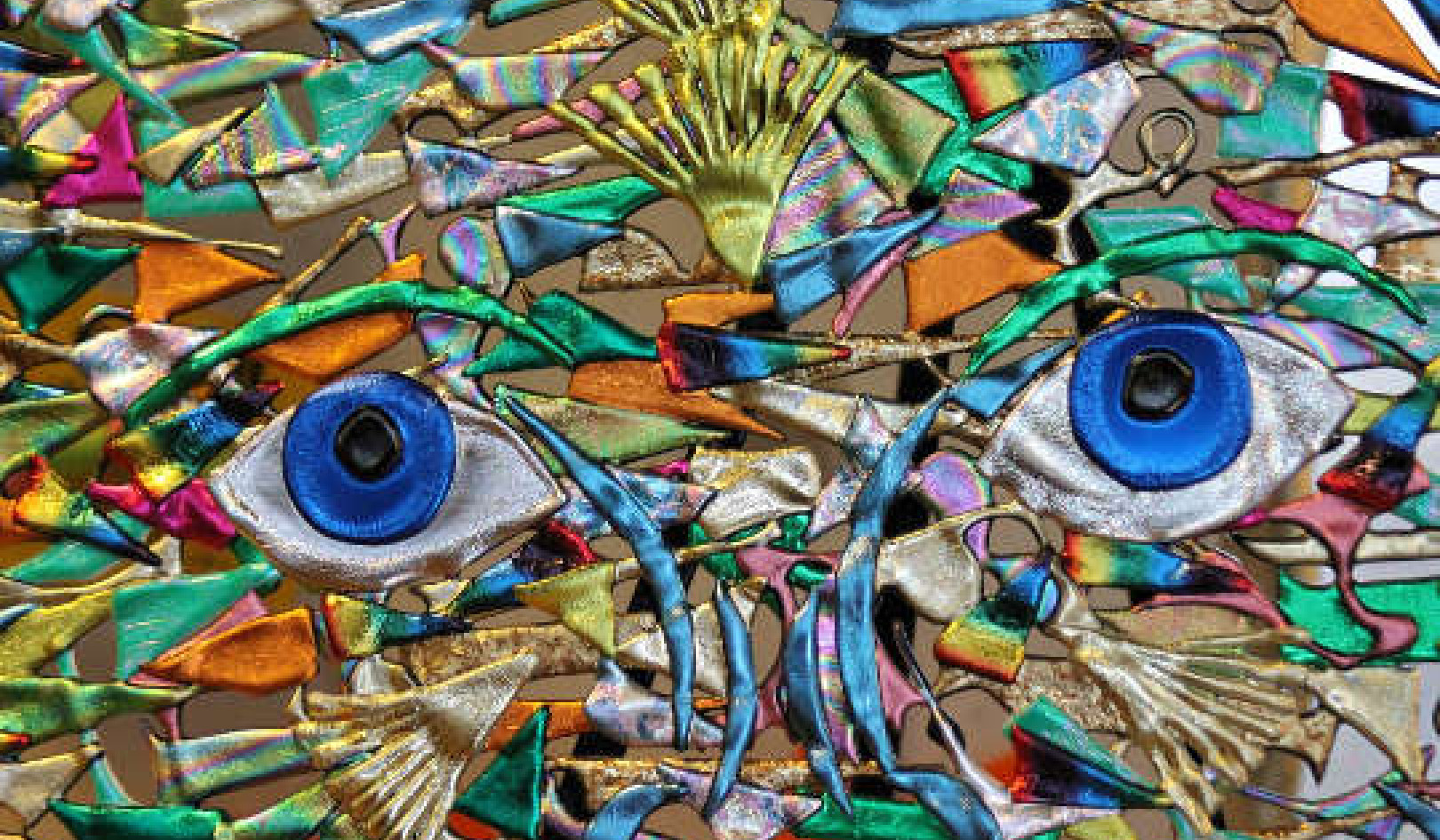
Our beliefs about our romantic partner act like a pair of tinted glasses that colour our experience of our partner. (Shutterstock)
For some, the COVID-19 pandemic has offered an opportunity to spend more time and reconnect with romantic partners. For others, love on lockdown has magnified relationship difficulties that couples were experiencing before the pandemic, leading to increased relationship stress and dissatisfaction.
Break-ups, divorces and even domestic violence have been on the rise since the pandemic began.
Given that stable and satisfying relationships are critical for both mental and physical health, it is necessary to understand what contributes to relationship distress, and how to fix it. That’s one of the goals of the “Breaking Sad” lab at Western University. Our lab focuses on how negative thinking contributes to depression and how these beliefs impact relationships.
Recent research from our lab suggests that the beliefs we hold about our romantic partners may be especially important in understanding dysfunctional relationship patterns.
The importance of beliefs about partners
In a recent study, we found that individuals in relationships create sophisticated mental representations of their romantic partners. What’s more, these mental representations are stored in our memory, and are thought to influence the way that we understand, interpret and respond to the things our partners say and do. In a sense, they act like a pair of tinted glasses that colour our experience of our partner.
If you hold a generally positive representation of your partner in your mind (for example, “he is a caring, thoughtful and well-intentioned person”), it is akin to wearing a pair of rose-tinted glasses. You might be more inclined to interpret some things your partner does in a more positive or benign light, such as, “he didn’t reply to my text because he was busy in a meeting, I know he isn’t just ignoring me and will answer as soon as he has the chance.”
On the flip side, if you hold a generally negative representation of your partner in your mind (“she is selfish and does not care about my needs”), you may tend to see your partner’s actions through a pair of glasses that are far less rosy. You may think: “She did not reply to my text because she is ignoring me and does not care about what I have to say.”
 Negative beliefs about a partner affect how we interpret things like an unreturned text message. (Shutterstock)
Negative beliefs about a partner affect how we interpret things like an unreturned text message. (Shutterstock)
The more we continue to see a partner’s actions in a less forgiving light, the more consolidated our negative representations of them become — and the darker our “tinted glasses” come to be.
In this way, negative beliefs about our partners may lead us to feel angry or depressed and cause us to respond to them in a less helpful way, such as becoming critical or withdrawing from them. This ultimately results in both partners feeling less satisfied and supported in the relationship.
Unfortunately for many, positive beliefs about a partner that are prominent in the early stages of a relationship tend to become more negative over time. What once drew us to our partner often becomes the thing that irks us the most. Exciting spontaneity becomes poor planning and unreliability.
Changing unhelpful thinking about a partner
So what can you do if you have an overly negative representation of your romantic partner? How can you see through your “relationship glasses” a little more clearly?
For one, you can make an active effort to be more evidence-based in your thinking about your partner.
Research shows that evidence-based thinking is an important contributor to psychological well-being. In order to be more evidence-based in your thinking about a partner, remember to check the facts rather than rely on the negative explanations that may automatically come to mind.
Instead of jumping to conclusions and thinking that your partner is selfish and doesn’t care about you because they didn’t bring home the milk you asked for, take a pause and ask yourself: What evidence do I have to support the idea that my partner is selfish and doesn’t care about me? What evidence do I have that does not support this idea?
Not only can this help you to feel better in the moment, it will allow you to see things a little more clearly and respond to your partner in a healthier way.
 Offering a hug instead of criticism can change the way you think about your partner. Unsplash
Offering a hug instead of criticism can change the way you think about your partner. Unsplash
In addition to changing the way you think about your partner, it is important to change the interactions you have with your partner.
Believe it or not, changing the way you respond to your partner, such as opting for a hug instead of offering criticism when they arrive home without your milk, can actually change the way you feel and think about them. Putting in the extra effort to create positive interactions with your partner can help to change negative partner representations over time or prevent them from developing in the first place.
Now more than ever, with stresses running high and romantic relationships under pressure during the pandemic, it is important to do what is needed to nurture our closest connections.
About the Authors
Jesse Lee Wilde, PhD Student, Clinical Psychology, Western University and David J. A. Dozois, Professor of Clinical Psychology, Western University
This article is republished from The Conversation under a Creative Commons license. Read the original article.

Related Books:
The Five Love Languages: The Secret to Love That Lasts
by Gary Chapman
This book explores the concept of "love languages," or the ways in which individuals give and receive love, and offers advice for building strong relationships based on mutual understanding and respect.
Click for more info or to order
The Seven Principles for Making Marriage Work: A Practical Guide from the Country's Foremost Relationship Expert
by John M. Gottman and Nan Silver
The authors, leading relationship experts, offer advice for building a successful marriage based on research and practice, including tips for communication, conflict resolution, and emotional connection.
Click for more info or to order
Come as You Are: The Surprising New Science that Will Transform Your Sex Life
by Emily Nagoski
This book explores the science of sexual desire and offers insights and strategies for enhancing sexual pleasure and connection in relationships.
Click for more info or to order
Attached: The New Science of Adult Attachment and How It Can Help You Find—and Keep—Love
by Amir Levine and Rachel Heller
This book explores the science of adult attachment and offers insights and strategies for building healthy and fulfilling relationships.
Click for more info or to order
The Relationship Cure: A 5 Step Guide to Strengthening Your Marriage, Family, and Friendships
by John M. Gottman
The author, a leading relationship expert, offers a 5-step guide for building stronger and more meaningful relationships with loved ones, based on principles of emotional connection and empathy.
























